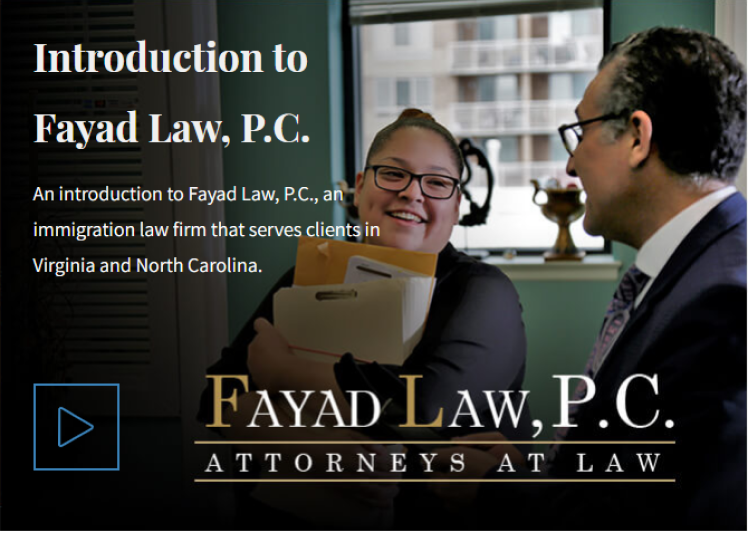¿Es factible una reforma migratoria este año o no?
Si es factible una reforma migratoria este año. Primero, el Presidente Obama tiene claramente el objetivo de una reforma migratoria comprensiva. Ya él ha anunciado su plan con puntos detallados para la nueva ley. También ha dicho que si el Congreso actúa y le entrega una propuesta él está dispuesto a firmar.
Segundo, los más de 12.2 millones votantes Hispanos que votaron en la elección este año votaron con propósito de apoyar una reforma migratoria. El mensaje de los votantes es claro – ya no es suficiente el DREAM Act, o DACA, o TPS. Se pide que el Presidente y el Congreso tomen acción para sacar de las sombras a las más de 11 millones de personas indocumentadas.
La última reforma ocurrió en el 1986 – y esta no proveo una manera factible de inmigrar a los E.E.U.U. legalmente – creciendo el número de personas que igual ingresaron al país sin documentos.
Tercero, ya no es un tema Demócrata o Republicano – es un tema en el cual los partidos se unen. El Senador electo Republicano de Arizona, Jeff Flake, en resumen, a dicho al radio público nacional (NPR por sus siglas en Ingles), a principios de este año, que el hecho de que estemos a cuatro años de una elección presidencial y dos años de una elección para el congreso, si va a pasar, debe pasar este año.
Una reforma migratoria no abre las fronteras a inmigración ilegal al resto del mundo. La nueva ley debe proteger la seguridad nacional, crear una manera legal de ingresar al país, y tratar de una manera humana de proveer una manera de documentar a las personas que ya están en el país. Más que nada – dar una oportunidad de legalización por empleo, familia, o estudio, a los millones de indocumentados en el país.
Entre todos los congresistas, el apoyo asía la reforma migratoria es dos a uno. Si, si es factible la reforma migratoria y demos mantenernos enfocados en esta meta.
Introduction To Fayad Law, P.C.

Have questions about your rights? Ready to discuss your
immigration case? Contact Fayad Law, P.C. now.
What Sets Fayad Law, P.C. Apart?

Firsthand Experience
as Immigrants

English, Arabic, French,
Russian, Spanish, and Farsi

Proven Track
Record of Success

Personal, One-on-One
Attention

You Stay Informed
at All Times

We Strive for Client
Satisfaction
FAQs - FREQUENTLY ASKED QUESTIONS
There are dozens of different types of visas available under the provisions of the Immigration and Nationality Act (INA), but they can all be placed in one of two categories: immigrant and nonimmigrant visas. The former is for individuals who are hoping to establish permanent residency with a green card and perhaps even to pursue the path to naturalization and citizenship. The latter is for those who are only planning a temporary visit to the United States, such as for the purpose of conducting business or attending school.
The INA sets limits on the number of people who will be permitted to immigrate to the United States each year using certain types of visas, while other visas are unlimited. Family immigration visas for the immediate relatives of U.S. citizens are available on an unlimited basis, while there are annual quotas set for the relatives of lawful permanent residents and extended family of citizens, with a maximum quota of 480,000. The number of employment immigration visas is limited to 140,000 per year.
Pathways to citizenship include service in the United States military and adoption, but a large percentage of all people who become citizens do so through the process of naturalization. The basic qualifications for naturalization include:
- Living in the U.S. as a permanent resident for 5 years (or 3 years for a spouse of a U.S. citizen)
- Being at least 18 years of age
- Living within the state where you will apply for citizenship for at least 3 months prior to the application date
- Being physically present in this country for at least half of the past 5 years
- Maintaining continuous residence in this country from the date you submit your application for naturalization
- Being able to read, write and speak English
- Have a basic understanding of U.S. government and civics
It is also necessary to supply evidence that you are a person of good moral character and are attached to the principles of the U.S. Constitution. We can assist you with proving these factors, as well as preparing your petition and helping you get ready for the tests.
In June of 2012, the Obama Administration directed the Department of Homeland Security (DHS) to begin applying a policy that is referred to as Deferred Action for Childhood Arrivals (DACA). Under deferred action, DHS is exercising discretion in its execution of the laws concerning deportation and removal of immigrants who are illegally present in the United States. Deferred action is not a change to the existing law, but is instead a change in the way that the law is being applied. You may qualify for relief under DACA if you were younger than 31 years of age on June 15, 2012, came to the U.S. before your 16th birthday, have continuously resided in this country since June 15, 2007 and are either currently in school or have already graduated from high school or earned your general education development (GED) certificate, among other criteria. With deferred action, you may be able to avoid being deported, though it does not grant any change of immigration status.
In its review of immigrant visa petitions, the U.S. Citizenship & Immigration Services (USCIS) weighs factors related to the ties that the prospective immigrant has in the United States and the reasons why he or she wants or needs to come to live in this country. For example, a family immigration petition will not be approved unless the foreign national has immediate relatives such as a spouse, mother or father, child or sibling already living here as a citizen or green card holder. An employment immigration petition is more likely to receive approval if the applicant has a job offer in this country and is coming to fill a position that cannot reasonably be filled from the local labor market. A foreign national who is fleeing persecution in his or her home country may be granted an immigrant visa as a refugee or asylee.
There are many strategies for challenging a removal action. If the proposed deportation is based on a criminal conviction, it may be possible to appeal the conviction in order to have it overturned. Another option is to petition for cancellation of removal, a type of immigration relief which is available to people who are of good moral character and whose deportation would subject a family member who is a citizen or permanent resident to extreme hardship. The key to success in stopping deportation is to take immediate action by hiring a Virginia immigration attorney from our firm as soon as possible. Contact us now at Fayad Law, P.C. for a confidential consultation and to let us get started on your case!
Fayad Law, P.C. maintains offices in Richmond and Fairfax, Virginia. We work with individuals, families, and businesses across the world, providing them with assistance in resolving the legal issues involved with helping their loved ones and employees to immigrate to the United States. We work directly with foreign nationals living abroad, guiding them through the process of obtaining immigrant and nonimmigrant visas for entry to the U.S.
Real Clients, Real Testimonials
Contact Us Today
Have questions about your rights? Ready to discuss your immigration case? Contact Fayad Law, P.C. now.



















